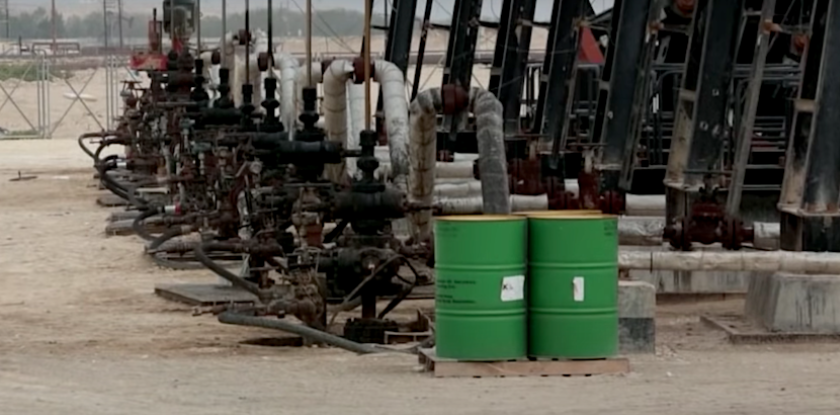On April 13, 2020, the Ministry of Energy of the Republic of Kazakhstan officially announced that, as part of the new OPEC+ agreement, the country is to cut oil production by 390 barrels a day. Let us consider what it means.
Here is the press release of the agency devoted to this sensitive subject (text in bold by kz.expert).
«On April 12, during the webinar of the OCEC+ members, a consensus was reached on the collective reduction of oil production by the OPEC+ countries as well as by the countries not included into the OPEC+ by 9.7 barrels a day. This is, undoubtedly, one of the biggest collective cuts in the history of oil industry. Kazakhstan, in its turn, has supported the agreement by accepting an obligation to cut oil production by 390 barrels a day.
This decision has been caused, first of all, by the complicated situation not only on the oil market but globally. Due to the coronavirus pandemics, the demand for oil has dropped dramatically in all countries so the suggestion of the OPEC Secretariat on the collective cut of oil production seems reasonable and timely. In the event, if the OPEC+ agreement wasn’t reached, the oil producing countries would have come to this decision anyway since all the market players are now facing the problem of overstocking inventories as well as of the lack of demand due to the the global oversupply of oil.
Thanks to the OPEC+ agreement, the reduction of oil production will be collective, it will be controlled and will give a positive impulse to the market which, according to the experts, will positively affect the oil price growth and will solve the overstocking problem. The Ministry of Energy is currently developing a plan of cutting the production of oil».
It is unlikely that someone would oppose the plans of the Ministry of Energy (or rather Akorda and the Library) since such life-altering decisions are made at the highest political level and not by the head of the agency. We have no doubt that the participation in the new OPEC+ agreement is vitally important for the country given the gigantic oversupply of oil on the world market and the non-competitiveness of the Kazakh oil due to the high cost of its transit. Kazakhstan needs to do everything in its power to restore the prices for the Urals brand if not to the pre-crisis level then at least to the level allowing not to spend the Sovereign Fund’s resources.
Based on the data released in the press, it follows that, in January 2020, the daily oil production in Kazakhstan constituted 1.69 mln barrels a day, therefore, the 390 thousand barrels of the planned cut constitute exactly 23%. In other words, it is exactly the percentage by which Russia and the other members of the new agreement have pledged to cut oil production.
Meanwhile, the speech made by the Minister of Energy of the Republic of Kazakhstan at the April 14th meeting of the Government demonstrates that oil production is planned to be cut by 5.5 mln ton — from 90 to 84.5 mln ton.
We are certain that, when implementing this task, the Ministry of Energy of the Republic of Kazakhstan will face great difficulties. First of all due to the fact that it cannot exert direct pressure on the biggest oil and gas producing companies with the participation of foreign investors, first of all, Tengizchevroil. Both due to the great influence of their foreign shareholders and due to the restrictions established by the production division agreements.
And this, among other things, means that there is a very high possibility that the major players on this market will cut their production within the limits that are convenient for them. Or, rather, will be least detrimental for them during these difficult times.
But then the Kazakh authorities will have to solve the task of cutting oil production via pressuring — first, national company KazMunaiGas, second, the small and medium private oil producing companies. Note that the latter had been engaged in the risky operations before since the state was significantly restricting their export possibilities making them deliver the products to local refineries. And now only a miracle, namely a good will of KazMunaiGas JSC, can save them.
The thing is that KazMunaiGas’ own profitable assets consist of the deposits that present virtually no interest for foreign investors when they come to Kazakhstan. Simply due to the fact that they have been exploited for many years and are, mainly, exhausted. For this reason, the prime cost of extraction from such deposits is much higher then the sector average and may reach up to 60 $-70 per barrel.
However, these deposits were continued being used for two reasons: first, the national company had an opportunity to compensate the losses through its other assets, second, it could not close the deposits due to the socio-political reasons. For, in this case, they would have to stop not just the production but the life itself in the areas of Western Kazakhstan, the area that, even without it, is known by its higher proneness to conflict.
But now, considering the coronavirus pandemics and the drop of the world oil prices, KazMunaiGas JSC and the Samruk-Kazyna Sovereign Welfare Fund are getting a unique opportunity to close these problem assets that bring endless losses to the state. Obviously, it is going to cost something, nonetheless, the problem gigantic in its complexity that has been tormenting the Kazakh authorities for a long time will be solved.
Therefore, we have no doubt that this is going to be done — such is the real economic necessity. However, this means that the industries are going to be closed, the employment is going to go down, the people will be forced to leave or move. The only question that is still not clear to us is who will pay for all of this and how much.
In the past, Akorda used to pull off such operations at the expense of the state, in other words, the taxpayers. It is enough to recall how the First President of the Republic of Kazakhstan saved the two biggest mining corporations controlled by affiliated billionaires Vladimir Kim and the Eurasians (Alexander Mashkevich — Patoch Shodiyev — Alidzhan Ibragimov). But then Nursultan Nazarbayev’s generosity was logical — from the very start, he and his family members had been the secret owners of these assets and the Leader of the Nation had basically been solving his own private problems.
In this instance, the old and loss-generating oil and gas assets are owned by the national company and no one, not even the management of KazMunaiGas and Samruk-Kazyna, has a direct incentive to save them. Thus, it is very likely that they will close them and pay a nominal aid to those who will suffer as a result of this operation. In order to shut their mouths for a time.
Alas, such is the logic of the operations of the modern Kazakh authorities.





